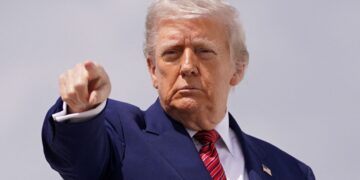(Reuters) -Officials from the Democratic Republic of Congo are optimistic they can reach a deal with Washington next month to secure U.S investment in critical minerals alongside support to end a Rwandan-backed rebellion in the country’s east, the Financial Times reported on Sunday.
Congolese minerals such as tungsten, tantalum and tin, which Kinshasa has long accused neighbouring Rwanda of illegally exploiting, could be exported legitimately to Rwanda for processing under the terms of a peace deal being negotiated by the U.S., Reuters reported last week.
An investment deal with the U.S. and separate peace deal with Rwanda were possible “by the end of June”, the newspaper said, citing two people close to the negotiations. But potential stumbling blocks remain substantial, the FT said.
Reuters could not confirm the report.
Congo’s Mines Minister Kizito Pakabomba said an agreement with the U.S. would help “diversify our partnerships”, reducing the country’s dependence on China for the exploitation of its vast mineral riches, the FT reported.
Kinshasa views the plundering of its mineral wealth as a key driver of the conflict between its forces and Rwanda-backed M23 rebels in eastern Congo that has intensified since January, accusing Kigali of smuggling tens of millions of dollars worth of minerals over the border each month to be sold from Rwanda.
Washington is pushing for a peace agreement between the two sides to be signed this summer, accompanied by minerals deals aimed at bringing billions of dollars of Western investment to the region, Massad Boulos, U.S. President Donald Trump’s senior adviser for Africa, said earlier this month.
“Both participants have committed to work to find peaceful resolutions to the issues driving the conflict in eastern DRC, and to introduce greater transparency to natural resource supply chains. Respect for each country’s territorial integrity is at the center of the process,” a U.S. State Department spokesperson told Reuters on Sunday.
Rwanda’s defensive measures along the border are necessary as long as threats and the cause of insecurity in the DRC persists, Yolande Makolo, a Rwandan government spokesperson said, according to the FT.
(Reporting by Mrinmay Dey and Rajveer Singh Pardesi in Bengaluru; Additonal reporting by Nilutpal Timsina; Editing by Christian Schmollinger)

















